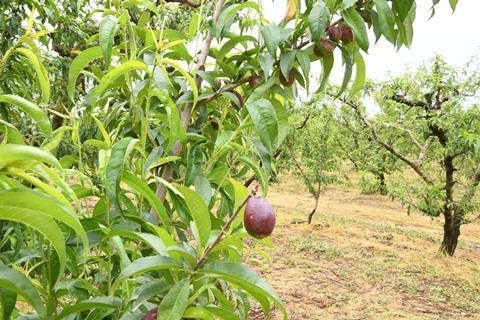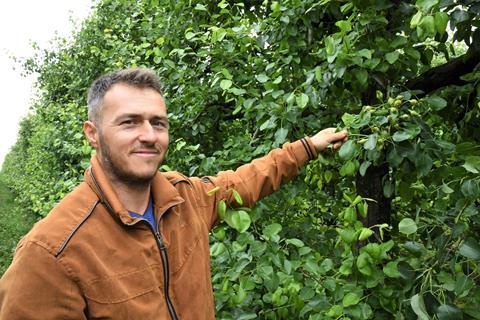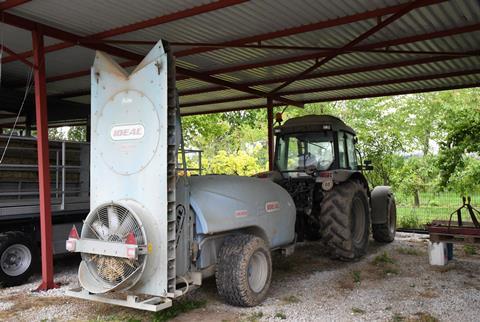Cost inflation and unpredictable market demand have made it even more difficult for fruit producers in the Greek region of Thessaly to maintain their business

Running a busy fruit farm in Greece comes with its own set of unique challenges: the effects of climate change, availability of labour supply, and fluctuating prices to name just three.
However, through a combination of sheer determination and some financial assistance from the European Union, brothers Grigoris and Andreas Lygouras are overcoming those challenges, albeit slowly.
Grigoris, 46, and Andreas, 36, run the Lygouras fruit farm in Tyrnavos, near Larissa in the country’s Thessaly region.
The 35ha site was founded in 1977 by their father Thanassi. When he retired, his sons took it over.
“Today we grow a range of fruits including cherries, nectarines, peaches and pears on the farm, which are normally very productive if the weather is favourable,” says Andreas. “However, the climate can be very unpredictable.”
In September 2023, that unpredictability hit home as many parts of Greece were inundated with heavy rain. “Thankfully, our farm escaped most of the flooding,” Andreas adds, “but we did have an area of table grapes that was destroyed by the water.”

The Lygouras brothers are very open about what their farm can generate. They grow 6ha of cherries, with an average yield of between five and ten tonnes per hectare, usually sold for €2 per kg. Nectarines grown on 10ha of land yield 20-30 tonnes/ha, selling for €0.60 per kg; and a similar area for pears averages the same volume, selling for anything from €0.35 per kg to €0.60 per kg.
Meanwhile, 5ha of peaches average 1-1.2 tonnes/ha that sell at €1.20/kg; 2ha of table grapes yield 25 tonnes/ha that sell at €0.50/kg; and 2ha of other cherries average 30 tonnes/ha and sell for €0.35/kg.
The main harvest season for cherries starts during the first ten days of May, and continues throughout the summer months with nectarines and peaches. In August, the pear harvest begins. Then in September it’s the turn of the wine-making grape varieties.
“All our fruit is sold to the Agricultural Cooperative Producers of Argyroupoli and to the Tyrnavos winery,” Andreas says. “We have to irrigate all our crops five to six hours per week from May to September. Most of the water is sourced from our own bore holes on the farm.”
Costs continue to rise
Andreas and Grigoris have noticed their costs of production have escalated recently. They say it has also become much more difficult to obtain skilled labour to help with the fruit harvesting.
“Two years ago our costs of production for the pears came to around €6,000 per hectare,” Andreas reveals. “However, now the costs have escalated to €10,000 to €11,000 per hectare.”

Funding from the European Union has played a vital role in securing investment for the Lygouras farm. Both brothers benefited from the European Young Farmers Scheme and the European Agricultural Fund for Rural Development (EAFRD).
“With the aid of a new business grant to improve our efficiency we were able to source funding from the EU to modernise tractors and agricultural machinery such as harvesters, sprayers and lawnmowers,” Andreas explains.
“Using the help of 50 per cent grants from the EU, I recently invested a total of €80,000 to modernise some machinery, with €40,000 coming from the EU. Grigoris also spent €100,000 on other machinery, receiving €50,000 euros from the EAFRD.”



